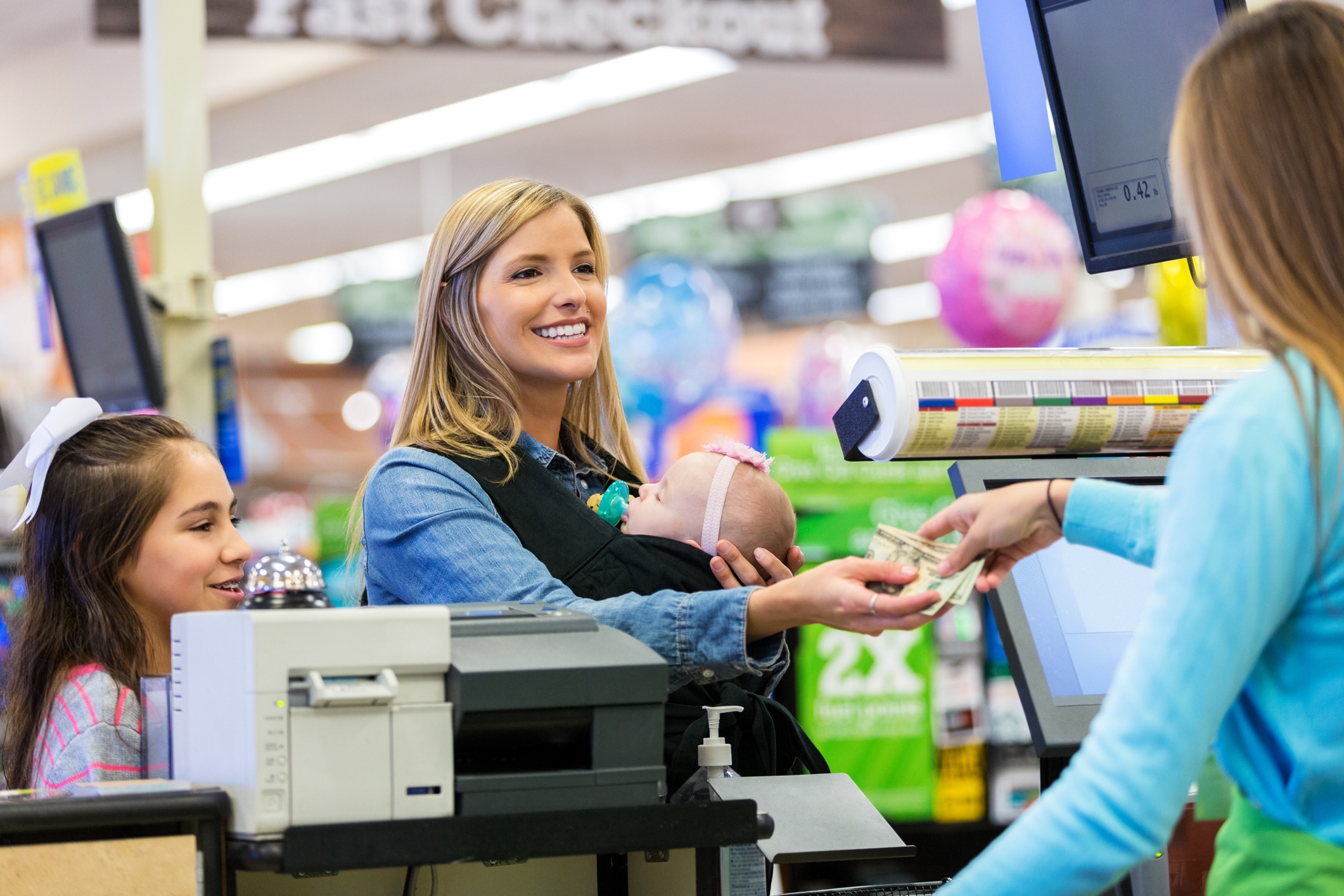2020 has changed life as we know it, and has undoubtedly been a challenging year for brands, retailers, and consumers alike. While some businesses have stayed afloat or even thrived amid the chaos, others have been forced into triage mode. And what was once a quick trip to the store has now become a matter of safety vs. necessity for many Americans. Continue reading “Wishing you a happy & healthy Thanksgiving”
Category: News
Inaugural 10.10 Shopping Festival to Deliver the Holidays to American Consumers
Coresight Research partners with Shopkick’s Shopper Appreciation Weekend and Fashwire to launch new shopping holiday and get consumers acting early.
Coresight Research, the global research and advisory firm specializing in retail and technology, Shopkick, and Fashwire, an AI driven two-sided B2B and B2C global fashion marketplace, today announce the 10.10 Shopping Festival, a new shopping holiday to engage American consumers and revitalize retail.
As COVID-19 continues to upend all aspects of the retail environment, and the economic toll on consumers weighs on, this new annual festival is designed to increase revenue for merchants and reward shoppers with savings for crossing off their lists early, all while supporting the lifesaving mission of St. Jude Children’s Research Hospital®: Finding cures. Saving children.®
On 10.10 (Oct. 10), and throughout the Shopper Appreciation Weekend (Oct. 9 – 11), shoppers will earn major rewards in the form of ‘kicks’ (Shopkick’s rewards currency) for visiting and purchasing from participating retailers and brands, both online and offline.
Fashwire is extending a special offer for its 300+ brand partners to be part of the festival.
“Shopping festivals, like Alibaba’s Singles’ Day in China, are a huge trend that have since expanded globally,” said Deborah Weinswig, founder and CEO of Coresight Research. “Our research shows that most consumers plan to holiday shop earlier than ever this year, providing the perfect opportunity to launch the 10.10 Shopping Festival to support retailers in their efforts to keep up with demand now and through the entire holiday season.”
In the spirit of giving, Shopkick will match 5 percent of all “kicks” (reward points) earned throughout the weekend and donate the monetary value to St. Jude, a leading research hospital to help in the organization’s efforts to find treatments for patients with childhood cancer and other life-threatening diseases. Shoppers can redeem their kicks for free gift cards to their favorite retailers, like Target, Walmart, Amazon and many more, for even bigger savings in time for the holidays. Additionally, beginning October 1, 2020 until October 12, 2020, Fashwire will donate $0.50 for every download of the app (App Store and Google Play) to St. Jude.
“We’re thrilled to thank our loyal users by offering big kicks throughout Shopper Appreciation Weekend, and to partner with Coresight Research to make the 10.10 Shopping Festival a reality for shoppers across the country,” said Dave Fisch, general manager of Shopkick. “By rewarding consumers throughout the entire online and in-store shopping experience, we hope to make it that much easier to check off all of their holiday needs, while also offering a chance to give back to a worthy cause.”
“The core DNA of the Fashwire platform is to create connectivity between consumers and retailers. The 10.10 Shopping Festival speaks to just that,” said Kimberly Carney, Fashwire Founder and CEO. “As founders we wanted to create something revolutionary, innovative and accessible for both our brands and the consumer while being philanthropic simultaneously. We have taken all of the current market passion points and aligned them with a modern virtual experience that will allow consumers to shop covetable season must-haves early while giving back.”
Looking ahead, Coresight Research envisions the 10.10 Shopping Festival becoming a major U.S. shopping event. The festival will include broad participation from leading omnichannel and direct-to-consumer retailers that will provide consumers with discounts of 25 percent or more off popular products. To participate in the 10.10 Shopping Festival, download Shopkick on your iPhone or Android.
For more information on the event, visit http://1010shoppingfestival.com
Shopkick celebrates 10 years!
This August we are celebrating 10 years of Shopkick, and all of the milestones we’ve hit this past decade. Continue reading “Shopkick celebrates 10 years!”
America’s New Shopping Routine: Stocking Up and Spending Less
Latest Shopkick survey finds consumers in states hit hardest by new COVID cases are still shopping in-store
Continue reading “America’s New Shopping Routine: Stocking Up and Spending Less”
Consumers Looking Forward to Non-Essential Retailers Reopening, as Long as There Are Safety Precautions
Half of Americans plan to visit non-essential retailers within a week of reopening; Gen Z most likely to visit within first few days.
American Shopping Behavior Evolving Weekly Amidst COVID-19 Crisis
Essential items remain out-of-stock on store shelves, consumers tightening belts on nonessential items.
As COVID-19 continues to impact Americans’ daily lives, new updates and stricter regulations paired with growing concerns about the virus have led to drastic changes in consumer shopping behavior in just a matter of weeks, according to a new Shopkick survey. After comparing the new data with two previous surveys – the first in mid-March, the other in early April – we found key differences in consumer behavior related to in-store shopping, spending on non-essential items, health precautions and more.
In this latest study, we surveyed more than 20,000 consumers across the country between April 16-20, 2020 to gain insights into how consumer behavior has changed as the COVID-19 situation evolves.
Key findings include:
Growing concerns are changing shopping behavior. In the March survey, 76 percent of consumers said concerns about the virus were affecting their shopping habits. Now, with national stay-at-home orders in effect and people having a much clearer understanding of how the virus spreads, that number has jumped to 82 percent, with 45 percent of consumers also saying they were more concerned.
Consumers are frequenting new retailers more often. Consumers remain open to trying new brands and products, with more taking advantage of varied inventory at different types of retailers. The number of consumers visiting a wider range of store types increased in the latest survey, with a higher percentage saying they were shopping in grocery stores (77 percent in April, 72 percent in March), big box retailers (72 percent in April, 69 percent in March), drug stores (45 percent in April, 42 percent in March), dollar stores (35 percent in April, 32 percent in March), club stores (29 percent in April, 27 percent in March) and convenience stores (20 percent in April, 19 percent in March).
Americans are only braving stores once a week. In the March survey, 50 percent of consumers said they averaged one trip to the store per week. Now, with social distancing orders in effect across the country, that number has increased to 60 percent, with a near 10 percent drop in more frequent shopping trips across the board.
Health precautions now include wearing gloves and masks. Ninety-one percent of consumers now take additional health precautions while shopping in-store, compared to 85 percent previously. These precautions include disinfecting hands and shopping carts (89 percent), using debit/credit cards to avoid exchanging cash (68 percent), shopping at less busy times (67 percent) and using self-checkout (53 percent). Due to new government regulations, many shoppers are also wearing protective masks (78 percent) and gloves (42 percent) while in stores.
Younger shoppers are still stocking up. America’s youngest consumers are continuing to fill their shopping carts with essential items. Most Gen Zers (67 percent) and Millennials (58 percent) said they were still stocking up this month, compared to less than half of Gen Xers (49 percent) and Boomers (42 percent).
Consumers are spending less on non-essential purchases. In March, slightly more than half of consumers said they were spending less on non-essential purchases (52 percent). Now, that number has increased to 67 percent.
Toilet paper is still out of stock. Americans are still struggling to find essential items on store shelves, with 64 percent reporting these items as sold out or low-in-stock. Consumers said the most out-of-stock essentials included toilet paper (91 percent), cleaning supplies (81 percent), paper towels (71 percent) and medical items like masks and gloves (59 percent). Meanwhile, other essentials like soups and canned goods (37 percent), baby wipes (35 percent), pasta (33 percent), painkillers and medicine (23 percent) and pet supplies (eight percent) appeared to be making their way back to shelves.
Similar data was uncovered by Trax, the parent company of Shopkick. The leading global provider of computer vision solutions and analytics for retail looked at two weeks of shelf inventory data (March 30 – April 10) from more than 300 stores across a variety of U.S. retailers. Trax processed over 50,000 images of shelves carrying 10 essential product categories to understand the reality of shelf availability in store.
This broad picture of actual product availability depicts similar findings to what consumers reported seeing totally out-of-stock and low-in-stock items included toilet paper (92 percent), cleaning supplies (53 percent) and baby wipes (46 percent). Meanwhile, painkillers, pasta, soups and pet supplies were mostly in-stock.
“As the realities of COVID-19 sink in and we get a better grasp on how to combat the virus, consumers will continue to change their shopping behaviors to match,” said Dave Fisch, general manager of Shopkick. “We have already seen ebbs and flows in actual purchasing behavior as Americans figure out how to navigate the situation for themselves and their families. We hope that by providing the most up-to-date data, we can help paint the full picture of what retailers and consumers are experiencing during these rapidly changing times.”
Get in touch for more information on our continued efforts to help our partners navigate shifting consumer behaviors during these unprecedented times.
Shopkick’s anytime, anywhere influence
Shopkick is proud to announce several new partnerships and features that further develop our ability to engage with today’s shoppers. In the midst of the current health and economic crisis, we remain focused on helping our partners connect with shoppers wherever and whenever they shop. Continue reading “Shopkick’s anytime, anywhere influence”
Majority of Americans Changing How They Shop Due to COVID-19 Concerns
Most consumers are stocking up in-store, despite health concerns and empty aisles, according to the new Shopkick survey
Continue reading “Majority of Americans Changing How They Shop Due to COVID-19 Concerns”
Shopkick and Joy of Mom Partner to Give Modern Moms What They Really Want
Members of the motherhood mecca will receive exclusive experiences, provide product feedback, and curate content for moms, by moms.
Continue reading “Shopkick and Joy of Mom Partner to Give Modern Moms What They Really Want”
How the best marketing trends of 2018 will impact brand retention in the coming year
Marketing trends in 2018 were heavily focused on the new options created through updated technology, and this will continue to shape the industry through 2019. Continue reading “How the best marketing trends of 2018 will impact brand retention in the coming year”
Becoming mobile champions: A fireside chat with Shopkick & Branch
Earlier this month, Shopkick CEO Adam Sand spoke at the Mobile World Congress Americas 2018 conference. Continue reading “Becoming mobile champions: A fireside chat with Shopkick & Branch”
Shopkick turns 9! A look back on our year
August marks Shopkick’s 9th birthday, and to celebrate, we’re taking a look back on all that we’ve accomplished in the past year. Continue reading “Shopkick turns 9! A look back on our year”











